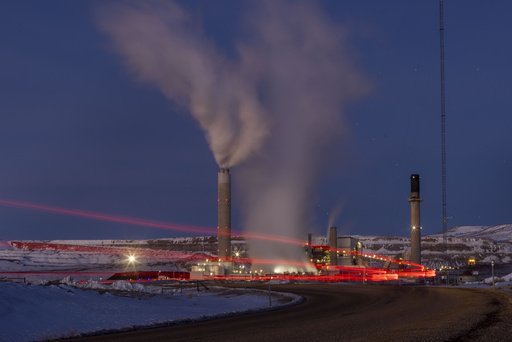The United States is moving quickly to authorize and construct a new era of nuclear reactors to provide clean electricity. Both Congress and the Biden administration are in agreement about the need for expedited development. President Joe Biden signed a bill in July to streamline the licensing process for new reactor technologies to accelerate their construction. Leaders from both the Democratic and Republican sides of the Senate environment and House energy committees commended the legislation.
The U.S. is focusing on small modular reactors and advanced reactors, some of which utilize alternative cooling methods like liquid metal, helium, or liquid salt. Developers suggest that these advanced coolants allow the reactors to operate at low pressure, enhancing safety compared to conventional designs. Currently, Russia and China are the only countries with operational advanced reactors.
The United States is striving to promote this new technology, with the Energy Department announcing $900 million in funding in June. TerraPower, a company founded by Bill Gates, became the first in the U.S. to apply for a construction permit from the Nuclear Regulatory Commission for an advanced reactor slated to function as a commercial nuclear power plant.
Some readers have queries regarding the advancements in nuclear technology, including how these new reactors could aid in addressing climate change, the management of radioactive waste, and most importantly, the safety of the new reactor designs.
Ali Zaidi, White House National Climate Advisor, highlighted that nuclear energy is one of the tools available to meet future energy demands without exacerbating climate change issues. Nuclear power plants do not release greenhouse gases that contribute to global warming, unlike fossil fuel-powered plants.
Efforts are being made to expedite the introduction of these reactors within this decade, aiming for a significant increase in utilization of this technology over the next 10 to 15 years. The foremost project, led by TerraPower, plans to be operational in Wyoming by 2030, with the NRC aiming for a 27-month technical review timeline.
Concerns about the storage of radioactive waste from new reactors were also raised by readers. Michael Goff, Acting Assistant Secretary for Nuclear Energy, mentioned that the spent fuel from new reactors will be stored at the same sites where they are utilized until a federal storage facility becomes operational.
Regarding safety concerns, Scott Burnell from the Nuclear Regulatory Commission emphasized that all U.S. nuclear plants must adhere to NRC safety regulations to ensure safe operations under normal and extreme conditions. New reactor designs are incorporating features to reduce the likelihood of fuel overheating or melting, with the NRC mandating stringent safety measures for these designs.


